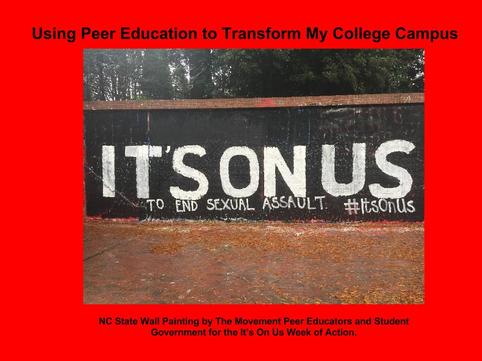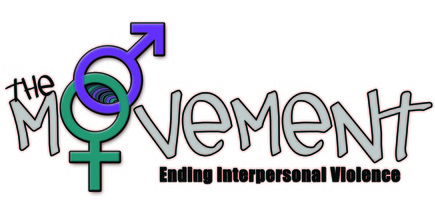|
By Sara Forcella, See the Triumph Contributor Dealing with issues like domestic violence and sexual assault is never easy. Working on a college campus adds an entirely new dynamic into the picture. In the short time that I’ve been working at a large, public university, I’ve learned that not everybody is as concerned with these issues as me. In fact, some students will graduate and never think twice about stalking, rape, or partner violence--although I’m sure it’s in some way affected them, even if they don’t realize it. My job as an educator and as a self-identified activist is to change the perception that students have about these issues. It’s my prerogative that all students--no matter their race, sex, gender identity, sexual identity, etc.--should leave with an understanding of gender-based violence. They should know what it looks like, how it affects others and our society, and most importantly how they can help work toward ending it. My day-to-day job consists of talking to students about things like sexual assault and partner violence, but there’s so much more that needs to be said and heard. Even though I talk to students on a one-on-one level, in small groups, and in even in large classrooms filled with 150 students, my words can’t reach all 35,000 students at my university. That’s where my group of campus leaders comes in! Through our university’s Women’s Center, we have a group of trained peer educators who go out and facilitate workshops to student groups like Greek Life, Resident Halls, classes and much more. This group is called “The Movement.” The great thing about this group is not only their passion for issues of social justice and gender equity, but their ability to relate to their peers. Who better to speak to a group of sorority sisters about sexual violence than 2 fellow female students? These students go to similar classes, dine at the same dining halls, live in the same residence halls and understand current issues in college life in a way that I never can or will considering my age difference with traditional-aged college students.
The really great thing about using peer educators to teach about issues of gender-based violence is that the folks who attend workshops actually care. Students care about other students! There's a sense of comradery that I, as an educator, can't achieve. Workshops facilitated by peers also create a really safe space for other students. There they are able to ask seemingly ‘silly’ questions, and they even can be confrontational and disagree. I believe that any contribution to the conversation is good as long as the conversation is happening! Our peer educators are trained, so they know how to deal with conflict and potentially triggering subjects. We consistently receive great feedback about our facilitators and their commitment to the issue. It’s my hope their their passion, commitment, and words will help instill the same passion in other students and open their minds to issues that are critical to talk about. Comments are closed.
|
Archives
July 2024
CategoriesAll About Intimate Partner Violence About Intimate Partner Violence Advocacy Ambassadors Children Churches College Campuses Cultural Issues Domestic Violence Awareness Month Financial Recovery How To Help A Friend Human Rights Human-rights Immigrants International Media Overcoming Past Abuse Overcoming-past-abuse Parenting Prevention Resources For Survivors Safe Relationships Following Abuse Schools Selfcare Self-care Sexual Assault Sexuality Social Justice Social-justice Stigma Supporting Survivors Survivor Quotes Survivor-quotes Survivor Stories Teen Dating Violence Trafficking Transformative-approaches |
Search by typing & pressing enter




 RSS Feed
RSS Feed